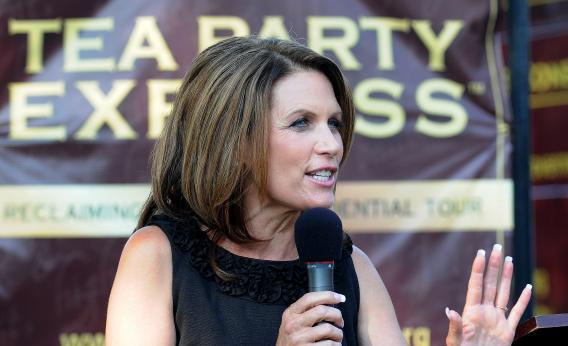Minnesota House member and conservative icon Michele Bachmann announced today that she’s stepping down from her House seat to pursue unknown other ventures.
Initial news coverage seems to be linking this to an Ethics Committee investigation into the possible misuse of PAC funds to support her nominal 2012 presidential bid. But I think the relevant precedent here is South Carolina Sen. Jim DeMint resigning in order to run the Heritage Foundation. Or perhaps former Arkansas Gov. Mike Huckabee taking a pass at a 2012 presidential bid in favor of working as a Fox News host. Which is to say that for many prominent conservative elected officials, getting out of politics and into the conservative edutainment industry seems like a more appealing and interesting option than continuing to work in politics. You can particularly see this in the case of Bachmann. She’s an unusually famous House member, but becoming a powerful House member is hard work and often takes a long time. The state of Minnesota as a whole isn’t nearly conservative enough for Bachmann to become governor or senator without moderating somewhat, and back-bench House members can’t really run for president. But if Bachmann gets out, I’m sure she can earn plenty of money writing books or making TV shows or doing speaking appearances.
Of course the tension between a desire to make money and a desire to move up in politics also exists for Democrats. But it’s the conventional tension that exists on both sides between ideological purity and the lure of K Street dealmaking. The conservative movement has become strong enough as a social force that you can get rich by being a conservative media star, which would not work for liberals.
